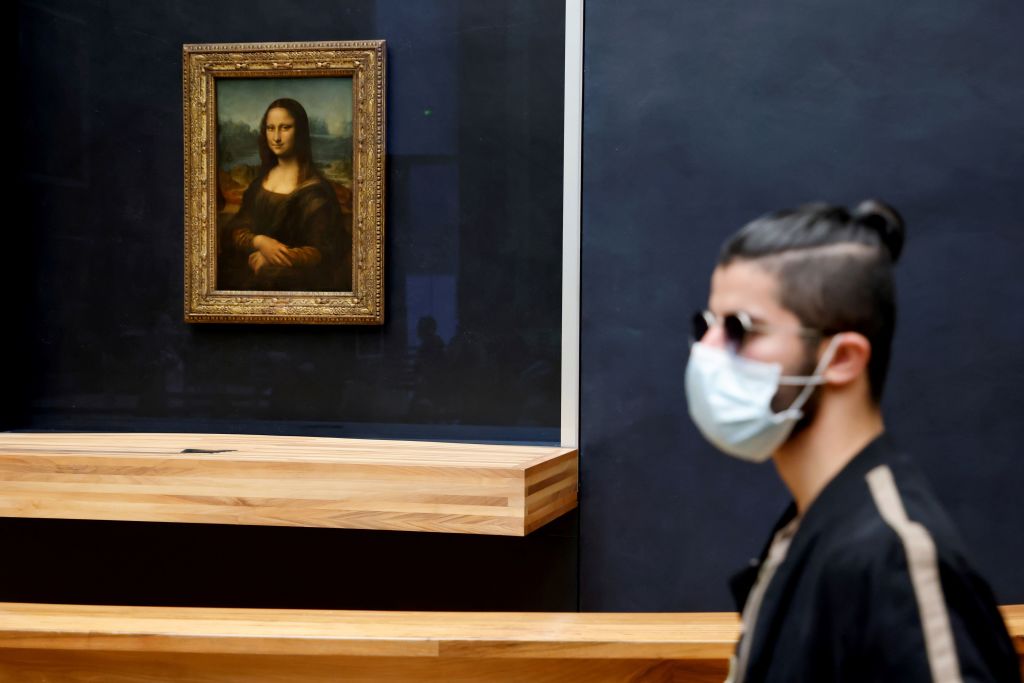Following surge in coronavirus cases, European countries impose strict new restrictions


New coronavirus restrictions are being implemented across Europe, due to a rising tide of infections in all corners of the continent.
The European Center for Disease Prevention and Control said the infection rate "has been increasing for 77 days," and last week, more than 700,000 new cases were reported, a 36 percent weekly increase, NPR reports. With an average of 100,000 cases being reported daily, Europe is seeing its highest coronavirus numbers ever.
On Wednesday night, French President Emmanuel Macron announced that starting Saturday, Paris and eight other "health emergency zones" will have nightly curfews, and violators will face steep fines. Italy reported more than 7,300 new coronavirus cases on Wednesday, the country's largest one-day total, and the government will soon limit sporting events, school activities, and other gatherings.
The Week
Escape your echo chamber. Get the facts behind the news, plus analysis from multiple perspectives.

Sign up for The Week's Free Newsletters
From our morning news briefing to a weekly Good News Newsletter, get the best of The Week delivered directly to your inbox.
From our morning news briefing to a weekly Good News Newsletter, get the best of The Week delivered directly to your inbox.
The Czech Republic has the highest number of infections per capita in Europe, and on Wednesday, all schools were closed and now bars and restaurants can only offer takeout, before closing at 8 p.m. All nonessential medical procedures have also been canceled. For the next 15 days in Catalonia, all bars and restaurants can only offer food and drinks to go, and there will be limits on how many people can enter malls, gyms, and theaters. Catalan Vice President Pere Aragonés called the coronavirus statistics "very worrying," and said these strict measures must be done to "avoid a lockdown in coming weeks."
A free daily email with the biggest news stories of the day – and the best features from TheWeek.com
Catherine Garcia has worked as a senior writer at The Week since 2014. Her writing and reporting have appeared in Entertainment Weekly, The New York Times, Wirecutter, NBC News and "The Book of Jezebel," among others. She's a graduate of the University of Redlands and the Columbia University Graduate School of Journalism.
-
 How drones have detected a deadly threat to Arctic whales
How drones have detected a deadly threat to Arctic whalesUnder the radar Monitoring the sea in the air
-
 A running list of the US government figures Donald Trump has pardoned
A running list of the US government figures Donald Trump has pardonedin depth Clearing the slate for his favorite elected officials
-
 Ski town strikers fight rising cost of living
Ski town strikers fight rising cost of livingThe Explainer Telluride is the latest ski resort experiencing an instructor strike
-
 Trump HHS slashes advised child vaccinations
Trump HHS slashes advised child vaccinationsSpeed Read In a widely condemned move, the CDC will now recommend that children get vaccinated against 11 communicable diseases, not 17
-
 FDA OKs generic abortion pill, riling the right
FDA OKs generic abortion pill, riling the rightSpeed Read The drug in question is a generic version of mifepristone, used to carry out two-thirds of US abortions
-
 RFK Jr. vaccine panel advises restricting MMRV shot
RFK Jr. vaccine panel advises restricting MMRV shotSpeed Read The committee voted to restrict access to a childhood vaccine against chickenpox
-
 Texas declares end to measles outbreak
Texas declares end to measles outbreakSpeed Read The vaccine-preventable disease is still spreading in neighboring states, Mexico and Canada
-
 RFK Jr. shuts down mRNA vaccine funding at agency
RFK Jr. shuts down mRNA vaccine funding at agencySpeed Read The decision canceled or modified 22 projects, primarily for work on vaccines and therapeutics for respiratory viruses
-
 Measles cases surge to 33-year high
Measles cases surge to 33-year highSpeed Read The infection was declared eliminated from the US in 2000 but has seen a resurgence amid vaccine hesitancy
-
 Kennedy's vaccine panel signals skepticism, change
Kennedy's vaccine panel signals skepticism, changeSpeed Read RFK Jr.'s new vaccine advisory board intends to make changes to the decades-old US immunization system
-
 Kennedy ousts entire CDC vaccine advisory panel
Kennedy ousts entire CDC vaccine advisory panelspeed read Health Secretary RFK Jr. is a longtime anti-vaccine activist who has criticized the panel of experts
